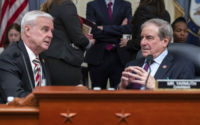Turkey’s May 14 Elections Show Nationalist Turn 2023
Nationalism won Turkey’s May 14 elections. Turkish nationalism has been rising for 10 years. Liberalism, socialism, and Islamism—international ideologies—are localized or weakened. The AK Party’s Islamist, conservative, and nationalist People’s Alliance has social support. With this combination, the AK Party won the parliamentary elections with 35.5%.
However, the Nationalist Movement Party (MHP) garnered 10.07% of votes, and the IYI Party 9.69%. The Victory Party gained over 2% and the Kurdish ethnic-nationalist Green Left Party (YSP) 8.82%. Additional tiny parties boost nationalist party support. ATA Alliance presidential candidate Sinan Oğan, an “Atatürk nationalist,” won over 5% of the vote.
Nationalism hollows down and its pretexts grow as it grows more popular and all political players take a nationalist posture. The May 14 elections saw a nationalist surge, but understanding it would be helpful. Is it sacred, secular, statist, idealist, anti-immigrant, race-based, inclusive, unionist, or Kurdish ethnonationalism?

CHP-HDP closer
All of these nationalisms might win the May 14 elections. Each claims victory. When Sinan Oğan forced a runoff, the far-right, anti-immigrant Victory Party, which underpins the ATA Alliance, gained prominence. The Republican People’s Party (CHP) is marginalizing Muharrem İnce’s Kemalist views, which were thrown out of politics by a FETO criminal cult plot. A political strategy should confront the CHP’s departure from Kemalist nationalism.
Since becoming president, Kemal Kılıçdaroğlu has worked to make the CHP capable of creating partnerships with various ideologies. Kılıçdaroğlu’s greatest “achievement” as president is eradicating the CHP’s Kemalist streak and allowing his party to create agreements with other political parties to exceed the 25% mark, the CHP’s historical highest support rate. Kılıçdaroğlu first aligned the CHP with the HDP. It was strategic.
Ten years have brought the HDP and CHP bases closer. The CHP-HDP reconciliation was Kılıçdaroğlu’s key strategic move to construct the Table of Six. Other actors are useless without the CHP-HDP partnership. Kılıçdaroğlu’s CHP sacrificed values. The CHP’s Kemalist identity appears to have been mostly shattered by the purges of Önder Sav, Emine Ülke Tarhan, and most recently Muharrem İnce.
CHP shell altered.
The CHP altered after ethnic, sectarian, and communist players replaced Kemalist slots. The Atatürk nationalist CHP is gone. In the face of Erdoğan, many CHP dissidents have been silenced or cowed. The CHP expelled Atatürk nationalists to work with “Kurdish ethnonationalists” like the HDP.
Kılıçdaroğlu’s second step to power was uniting secular and Atatürk nationalists. The IYI Party sought to fill this void in Turkish politics by uniting nationalists who had left the MHP, nationalist Kemalists, and more radical anti-immigrant populists. Over time, the IYI Party lost its Table of Six impetus. Kılıçdaroğlu defeated IYI Party leader Meral Akşener for the presidency.
Kılıçdaroğlu is good at minimizing weaker political forces, but he failed in the presidential contest. The Nation Alliance was weakest under the HDP/PKK shadow. After facing these allegations, Kılıçdaroğlu lost the first round of the presidential elections to President Erdoğan. Oğan won over conservative CHP and İnce defectors in this setting.



